Tim Jacobs, CEO MultiChoice Africa, and John Ugbe, managing director, MultiChoice Nigeria, explain the company’s Nigerian operations at an interview session with journalists in Johannesburg, South Africa, at the 2016 CNN/ MultiChoice African Journalist of the Year Awards
How has the current economic downturn in Nigeria affected your business?
Ugbe: We are facing very tough times and we hope they do not last. MultiChoice offers a lot of international content denominated in dollars which we have to continue offering our subscribers. The naira has been devalued officially by close to 70% – from N200 to N320 – but we all know the reality of the parallel market – the naira doesn’t exchange at N320 to a dollar. We haven’t done any price increase this year since the devaluation of the naira. We have been absorbing the costs on behalf of our subscribers. The naira required to pay for the content we buy in dollars has suddenly become so insufficient. Additionally, we can’t even get the dollars to remit. We are lucky that we have a big shareholder, who believes in our business. We haven’t been able to pay our bills for about a year now and have been supported by MultiChoice Africa. Bear in mind that our business is about 24 years old. That’s a mature business and not the kind of business that shareholders should be putting money into.
That is where the economic downturn has left us. However, we are all very hopeful, as with every Nigerian, that there will be some recovery in the price of oil, so that our economic indices can change quickly, and enable our business recover.
Advertisement
Jacobs: John has articulated the in-country challenges very clearly. When a country goes through the structural changes that have happened in Nigeria, with oil price reduced to about a third of what it was at its peak, many things begin to happen. Costs and inflation start going up and for your average consumer in Nigeria, there’s less take-home pay. That was one of the thought processes we had at the group level when we were looking at Nigeria and sat with John and his team to discuss the way forward. When the devaluation happened last year, we increased prices. However, a further devaluation happened about three to four months ago and we did not increase prices. We recognize that the customers in Nigeria are under pressure and we are doing everything that we can to try and absorb as much costs as we can before we put any price increase into the market. I think that it will become inevitable for us to put in place some price increases but in the meantime, we are trying as much as we can in the business to take costs south. We are going back to our suppliers to renegotiate the cost of content down, where we can. But in many instances we are tied into long-term contracts. For example, with the EPL, you are signed on for about three seasons and you are locked-in with those prices. We are trying to do whatever we can to first reduce the impact as much as we can ourselves, and then only will we look to potentially put in some prices into the market. It is a big concern and John raised a point. What worries us in the short term is not that the currency has been devalued by as much as it has, but that the parallel market is trading significantly worse and that there is still no dollar liquidity. And as John said, MultiChoice Africa is effectively funding the Nigerian business while we hope that things start to stabilize. But again, we have been in this situation before. You can’t be on the African continent and in Nigeria for 24 years and not go through these cycles. We are taking a longer term view, we still believe in the country, we still believe that Nigeria is a market we want to be in, and we are doing whatever we can to survive in the short term and hopefully, if we come through this and the economy starts to turnaround, hopefully we will start to see some better traction once the consumers have more money in their pockets.
From time to time, your staff call people up, asking them to renew their subscription. I would like to know how these economic changes have drastically affected your business. Have you noticed a very sharp drop in your subscriptions or has the drop been marginal? In addition, have you had any billing changes to accommodate these economic problems we are having in Nigeria?
Ugbe: With respect to our subscriber numbers, we always refer the public to naspers.com, where our audited numbers are published. Having said that, it’s no secret that every Nigerian is under pressure. Everyone is reassessing his budget and deciding on what to spend on.
Advertisement
However, I believe that we are one of the few companies that give you something that will put a smile on your face. So, we are seeing that more people are staying at home now because it’s more expensive to get up every night and go out. Comparatively, people are beginning to see that DStv is so much cheaper for your monthly entertainment than if you go out one night. It makes more sense to sit in front of your TV. So yes, people are using the opportunity and they subscribing. We fill a gap through the entertainment we provide. After all the challenges we face, you just want to sit down, put on your TV and have something to smile about. We also provide a big source of information – it’s not just global but local information. And people are at this point trying to find information about what is going on. So, it is that need for information that makes a service like ours very relevant at these tough times. People are subscribing but we are also very understanding, and as Tim mentioned earlier, that is why we have held out for as much as we can. We all know for instance that as soon as the naira was devalued, the prices of cars changed the next day based on something called a “restocking value”. We have held-off on price increases and subscribers are appreciative that we have held-out to ensure that they can still afford our services. Billing is something we continuously look at. We are at the middle of a project where we are trying to make changes internally to our entire billing structure and software. It might not be the right time but it’s all about continuous improvement for us.
We have also recently introduced GOtv Lite with a N400 monthly subscription that has made our service even more affordable. Who would have believed that there would a subscription package for N400? Our message to our subscribers is, “rather than let your TV go black completely, we have an affordable option for you. The pocket has shrunk but there’s something for you.”
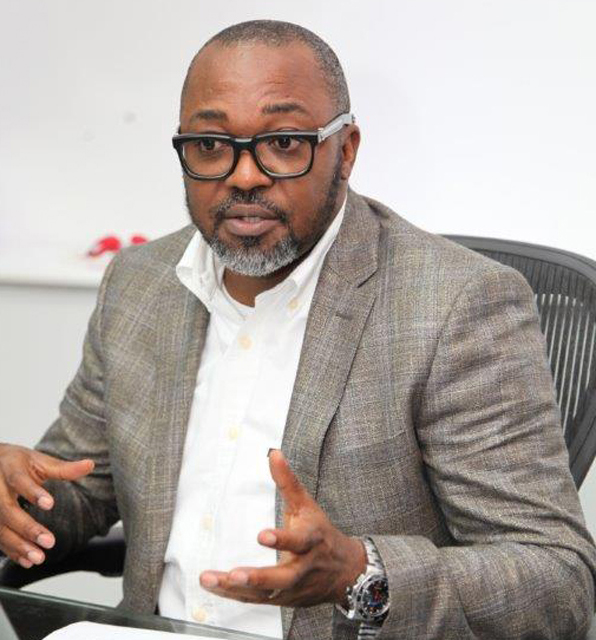
Given the hostility towards MultiChoice, how are you preparing for a possible backlash when you increase prices?
Ugbe: As a company, we always give notice before any price increase and I think we are one of the few companies that send out a notice to say that from “x” date, we are going to increase prices. I also think people are aware of the present state of the economy. I have spoken to a few people who have asked when we are going to increase prices and I said to them that we are trying to hold-out. Some people are not going to be happy, but as much as possible we will put the information out there to ensure that people understand. We will appeal to everyone to look at the situation objectively.
Advertisement
What we’ve done is to continue to support the growth of the entertainment industry. I think it is one of the last few industries that’s holding us on and I am so scared that if that industry went down, we would really be in big trouble in Nigeria. If you go and speak to the guy in Nollywood, they’d tell you that MultiChoice is commissioning and buying content, and keeping the relationship going. We can’t just take a decision not to buy because if you look at the effect MultiChoice has on the economy – the entire Nollywood supply chain – a decision not to buy content would kill the industry. We remain the backbone of that industry.
You have had the National Assembly take on your company and threaten to probe you. How will you explain a likely price increase to them or even the Consumer Protection Council?
Ugbe: We have an open-door policy with the National Assembly and the Consumer Protection Council and we explain to them. I think a lot of people fail to understand our business. We are a company that should make profits and we do not take excessive profits. We have to stay alive; we cannot wake up one day and announce to be public that we are gone. The reality of the pay-TV industry is that you sign three to five- year contracts with content suppliers. You have to assure these suppliers that you can buy the content to create a product you can sell. Unfortunately, you cannot go to the US and tell Time Warner that you want to pay for the content in naira. They will have a good laugh. It’s as simple as that. You cannot subscribe to a news agency abroad right now without remitting their payments in dollars. You don’t have a choice, otherwise they will cut your news feed. That’s the reality. We will as much as possible appeal to the media and everyone and explain the reason for a price increase (if it happens), and I believe people will show us some empathy. It’s business.
Explain some of the things you have done recently and in the past that are sustaining Nollywood.
Advertisement
Ugbe: On the face of it, the Africa Magic Viewers’ Choice Awards (AMVCA) looks like a big celebration. However, we can see a marked improvement in the quality of the movies we had when we started the AMVCAs four years ago compared to today. What the AMVCAs have done is to make the industry players work harder, not in isolation, but with the intervention MultiChoice. We train producers and have invested a lot. Everyone is now trying to win an AMVCA and in trying to win, the quality of the movies is improving. We recently heard of the Nollywood movies premiered at the Toronto Film Festival. I know some have been shown at the Urban World Film Festival in the US and there are a few more going to a Film Festival in the UK. That’s because of the improved quality of the movies. Furthermore, we are putting money on the table, commissioning and co-producing movies.
We commissioned Deloitte to do an independent report on the impact our business has had on the economy over the last three years. And according to that report, MultiChoice’s aggregate economic impact in Nigeria, across the period from 2012 to 2015 is estimated around $1.1 billion. In a few weeks, we will release that report and we will hold the briefing at our Ilupeju studios so you can see how much we have invested. It’s an independent report done by Deloitte, we simply opened our doors to them and asked that they have a look at the industry to see what we have been able to contribute because you mustn’t see our contributions as ad-hoc donations, which we make.
Advertisement
We have built studios that are world class by any standard and I would like anyone, anywhere in the world, to make a comparison.
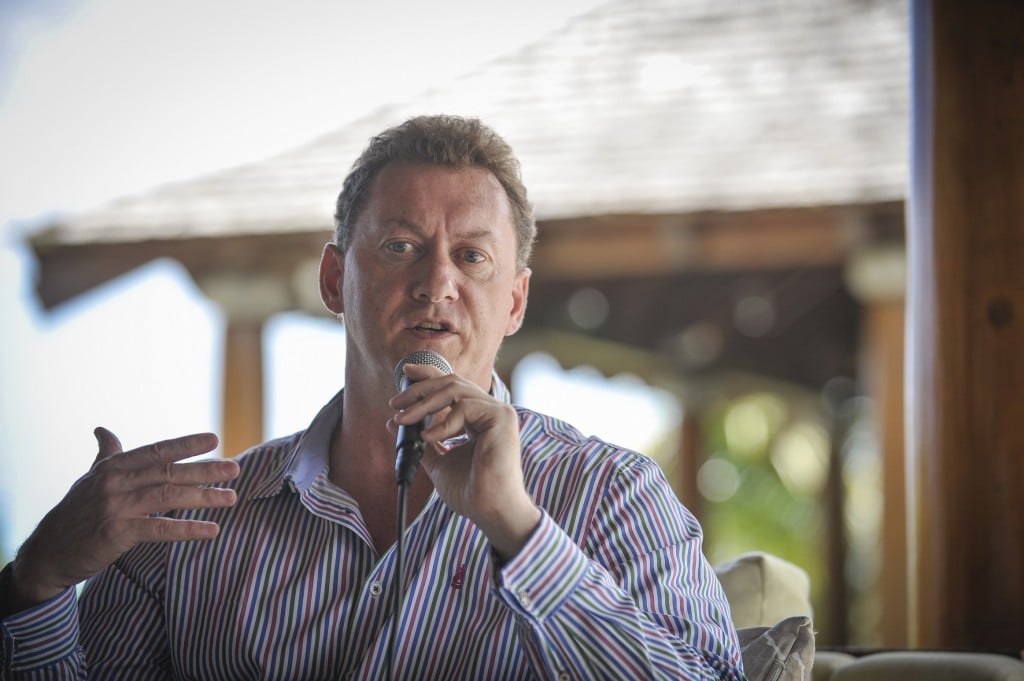
What has the setting up of the Ilupeju studios done for the economy?
Advertisement
Ugbeh: When the House of Representatives member representing that constituency visited our studios, he said he had no idea we were providing jobs for people in his constituency. We also put in a lot of subsidy into our decoders making them more affordable.
There’s a lot going on behind the scene that if it stops, it will hurt the economy. Going back to the AMVCA, a lot of hotels are fully booked from about two weeks leading up to the event. Nigerian designers live for that week. A lot of make-up artists are also employed during that period because we have created a platform. And I think that’s what we need – to create platforms. A lot of cities worldwide will actually fight to host such awards because they know what it does to the commerce of the city – transportation, food, everything is impacted. We bring hundreds of people from across Africa into Lagos for that period and we know what the AMVCA does for the economy of Lagos state.
Advertisement
There was a report that Nigerians are among the subscribers paying the least for DStv services. If you have that kind of report, why not make it public?
Ugbe: From the Nigerian perspective, our businesses are very independent. We don’t make comparisons with other countries. And prices are available online. The content which we license for our environment is at a different price from other markets, Ghana for example. MultiChoice Nigeria ultimately, is an independent company with local shareholders so we do business as a Nigerian company, and not in comparison with another territory. If it makes sense to charge one naira with a good business plan, we will do it not minding what goes on in another territory.
Jacobs: From the perspective of a shareholder, Nigeria is a big market for us. Over the years, the investment that we have made in various Nigerian content is quite enormous. We have invested in local language channels: Hausa Yoruba, Igbo and long term contracts with the Nigerian Football League to broadcast Football and support basketball. We do a lot of contracts that are very specific to Nigeria. The problem we have which is often misunderstood is competition. HiTV bid and took over football rights, Nigerians were excited and assumed they would get the football cheaper and at half price. Ultimately, HiTV went out of business as a result of the economics of football rights being so expensive. They took the cost football rights from something that was low and made it very high. We now contend with very specific Nigerian costs. There are a lot of things we are doing to absorb costs as shareholders. We are funding the business, while we try to slowly increase prices so consumers can absorb it for as low and long as we can. The second thing is that we try to take costs out of the business by doing what we do currently, but cheaper. Football is also now accessible on DStv Compact and we are thinking of doing same with other content such as kids, general entertainment and telenovelas. We are announcing content change at cheaper price points all the way down to DStv Access and launching an engaging new marketing campaign using a local celebrity in Nigeria, Basketmouth. He is funny and has the ability to interface with our customers and explain what is going on with DStv to them. All of this is done with one thing in mind and that is if we are going to be long term in Nigeria and see ourselves through the difficult times, we have to make our products more affordable for Nigerians, attractive at cheaper price points, give our consumers the opportunity to be able to watch TV when the wallets are being squeezed and doing a lot of things to ensure the survival of the business.
Besides Forex which is the main issue, what do you make of other policy measures, regulatory and fiscal, under the present administration? How impactful are they in your operations?
Jacobs: With the CPC investigation publicised, we could have done two things. We could have dug our heels in and fought and said it’s unreasonable and has a cost impact on the business. Instead, we sat as a team and asked ‘Does CPC have a point? Does it make sense for us to have a 24-hour toll free lines? Does it make it better for our consumers?’’ In these instances, it does make business sense for us to be doing this and at a cost to the business. We have introduced these additional measures coming out of the regulatory space and this is why CPC said we are the model of compliance once we implemented our different programmes. We didn’t fight and agreed it made sense for the business and the customer. There is always a small group of people who are never satisfied with what you do. Nevertheless, we will keep working and figure new ways to improve our systems and operations. The legislation and regulators are very active and have big impact on our business especially in Nigeria.
What was the position of the CPC?
Ugbe: It is extremely important that we engage and work with the regulators. It is robust process and continuous. We had a joint press conference and the CPC was very happy with the measures we have put in. It does not end, we keep working and have introduced toll free lines which is a first for pay TV in Nigeria which is at a cost to us. It is a continuous enhancement and we engage with the regulators frequently. The relationship with regulators is ongoing.
Jacobs: The other things we are doing is that we have new satellite capacity that we got in February this year. John is negotiating for a lot of additional channels to be put onto the platform. A whole lot more will happen in the next coming months. We are doing a lot to boost the value proposition for customers, make sure that we give them access to as much local content as we can. If your customer is happy, the regulator is normally happy. The regulator tends to tackle companies when consumers are complaining. If we can make customers happy and sort out that problem, then the regulatory problem tends to get smaller.
In reference to making customers happy, what are you doing about unsolicited calls by your marketing agents? It irritates quite a lot of subscribers.
Ugbe: It is one of those things that is either way. I get a lot of people personally who say: ‘You guys have changed. I love the fact that you remind me. It skips me completely and I get home at 11 in the night and I see that message and there is nothing that I can do.’ It is both ways. We have gotten a lot of positive feedback saying thank you for the reminders done. When reminders are done, customers ask about dates they will be disconnected so we had to put them in place. As things evolve, we continue to see the best method and put messages on the screen, send out text messages, emails reminding people amongst other things. We will continue to evaluate.
When are you introducing more HD channels? And when are you going to take into consideration the disabled, those who are learning impaired in terms of subtitles?
Jacobs: We have a lot of HD channels that will be launched in the near future and converting SD channels to HD. We should be having over 20 HD channels on DStv Premium. On the audio side, it is complicated and it massively expensive but it is available on some channels. For example, for telenovelas, we either dub into English or start to put in subtitles. We are a multi-channel environment and have to decide on what channels to do. A single 24-hour channel is 8,760 hours a year, and it will cost about $2,500 an hour to convert and put in audio subtitles. It is something we are aware of and as technology keeps changing, there may come a time that we can do something that’s cheaper and will start to factor that in.
There are reports alleging that whenever God is mentioned on DStv, it is blocked out and even in subtitles, occasionally, it is blipped. Is God a taboo on DStv?
Ugbe: It is a very tight balance for us. That came about because some people mentioned that God’s name was being mentioned in vain and blasphemous. In order to tread a thin line, a lot of these things are automated; you get a complaint and it goes into the system and we then begin to try to take out some words. One platform is serving a lot of cultures. In a lot of the programming, it not religious when this happens and is just someone saying ‘What in God’s name are you doing?’ which some customers feel is swearing with God’s name.
Are you investing in your transmission capability? Whenever it rains, subscribers experience loss of signals.
Ugbe: KU-band is affected by thunderstorms. I have taken pictures while sitting in New York when it started raining and my pay-TV went off, not minding the fact that we have more rainfall here. I visit people and I check the signal quality. Last week when I sat in the call centre, about three or four of the calls I answered were on signal quality. KU-band or satellite communications experience loss of signal, that’s why it is called rain fade; it is documented. However, the degree differs. We have put in more capacity into our satellites so that our satellites have more power, but your installation matters. Some people install their decoders and for 10 years do not check them. That doesn’t happen with your car. People send in their car for service every three months. So also, we advise you to check your installation from time to time.
We ask people to check their installation and we now have an installation team internally, doing a lot of follow-ups and telling subscribers to get their signal up 80 or 90%. The efficiency of the KU-band is documented at about 99.7%.
1 comments
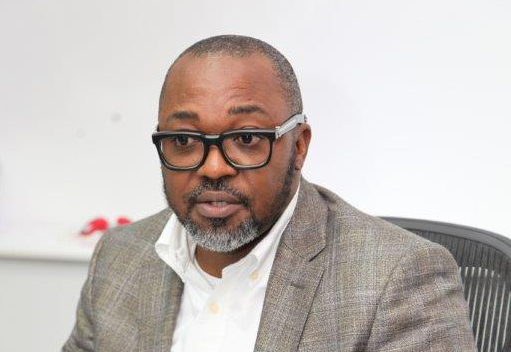


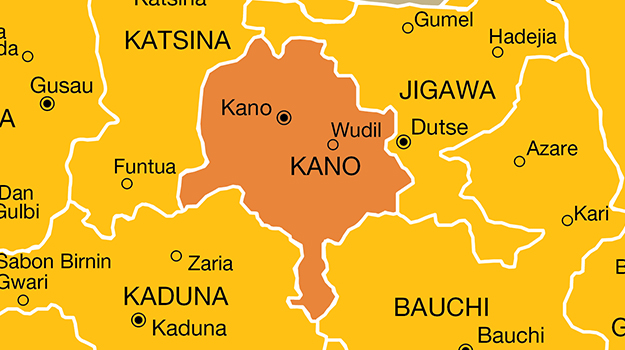

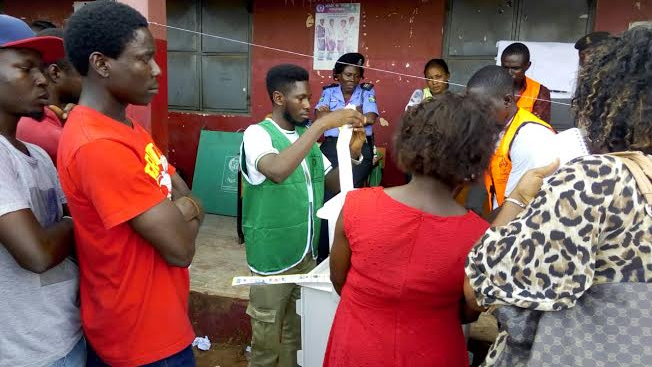
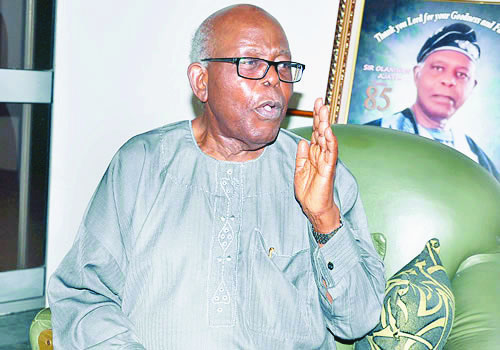
I enjoyed reading this interview even as I felt they sound as if they were doing us a favour by staying in business. Maybe in a way they are. They were just giving us a sense of the reality so I am fine with that. A lot of TV watching is not good for our brains- research has told it makes us stupider. One gains in weight and becomes diabetic. One loses one’s social skills. I gets indoctrinated by what one sees on TV. It is for the government to address those challenges, i suppose, not these businessmen.